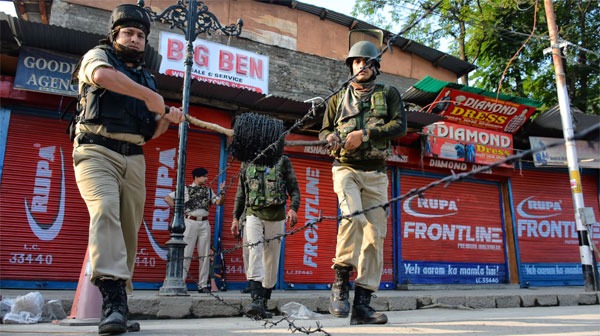The Indian government has formally divided Jammu and Kashmir into two separate territories of Jammu and Kashmir, and Ladakh, which are directly under the control of the federal government in New Delhi despite wide scale protests by Indian residents.
In fact, the recent decision of the Indian government was taken in the light of another action when India stripped Kashmir of the Special Status without observing the significant reactions from within Kashmir, from Pakistan as well as from the Islamic world. So India took the next step, namely the disintegration of Kashmir.
India made this decision based on its estimate of the costs and benefits of the first decision, but as to why the Indian government made such a decision and what its goals are, India seems to have two goals, first of all, suppressing separatist currents in Kashmir and secondly, to tighten the government’s grip over the region. Through this action part of Kashmir has effectively been dissolved into India. That is to say, the Indian government has now dissolved Ladakh, which is predominantly Hindu and Buddhist, within the land of India, a land whose people are religiously and racially part of the majority of the Indian population.
From this point of view, India will only be concerned with the Muslim-dominated Kashmir with Srinagar playing a central role. That is, if India had previously been concerned about the whole of Kashmir, it now becomes its second or third concern since the area of Ladakh is less than Kashmir Valley.
As a result, India has adopted a creeping policy towards Kashmir and is moving step by step to advance it.
In other words, Kashmir was once partitioned between India and Pakistan, and today the part under Indian control has been re-divided. This would allow India to better control the Kashmir Valley, and secondly, it has limited the Kashmir soil to the Kashmir Valley which if it wanted to become independent would cover a wide area.
Ultimately, if one day an independent Kashmir is supposed to be formed, it will only include the Kashmir Valley, which basically this “smaller independent Kashmir” has been one of the scenarios for resolving the Kashmir crisis. Earlier, the scenario was to create a “smaller, independent Kashmir”, which was the Kashmir Valley.
If this scenario is realized the Pakistan-controlled part of the country will remain part of Pakistan and the Indian-controlled part, including Jammu and Ladakh, will join India and the Kashmir Valley will become an independent Kashmir. With this division, India’s control over Kashmir will be consolidated.
India, of course, is not planning to implement this scenario at this time, as the Indians regard Kashmir an integral part of India and reject any scenario leading to the separation of all or part of Kashmir.
But now, with these divisions and the creation of a “smaller and independent Kashmir”, India is looking to provide a favorable ground so that if one day there is talk about separation of Kashmir it would only cover this part.
Concerning future scenarios, given the abolition of Kashmir’s autonomy and disintegration by India and the relative silence of the Muslim world, Pakistan and the independent circles in Kashmir several scenarios are foreseeable each requiring its own response. First, these events are likely to be a series of coordinated acts in the sense that the United States may have entered the field to give part of Kashmir, including Jammu and Ladakh to India and then force New Delhi to recognize the independence of the Kashmir Valley.
The second scenario is that India has really become so powerful that neither the people of Kashmir nor the Pakistani government were capable of confronting Delhi and that it will do all it likes to do.
The third scenario is to imagine the silence towards India’s actions is like ‘calm before the storm,’ and that this ‘fire under the ashes’ will eventually be activated and this activation could be in the form of inter-state clashes between India and Pakistan or internal clashes between Kashmiris and the Indians with the tacit support of Pakistan.










0 Comments